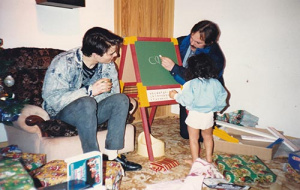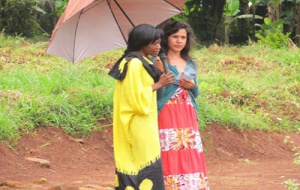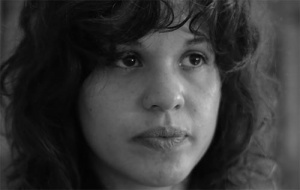Profile: Dr Roxana Willis
Dr Roxana Willis is a Junior Research Fellow in Law as well as a British Academy Postdoctoral Fellow. She teaches Criminal Law at Univ and lectures at the Faculty of Law on “critical perspectives on the insanity defence”. Her postdoctoral research examines the intersection of mental health, youth offending, and social class.
What drew you to studying Law?
University was not an obvious choice. My hometown has the second lowest rates of higher educational attainment in the UK, and attending university is especially difficult for young people from my estate. I essentially attended university because my parents were able to push me in this direction and were in a financial position to help. This contrasts to many other young people on my estate (and comparable areas), who are exposed to such severe structural barriers that mean university is inaccessible.
Not attending university taught my father how symbolically important the degree can be. Before working at the steelworks, my father was employed as a nightshift cleaner at a local factory. Having an aptitude for problem solving, he was eventually promoted to his own office and was called on to solve problems in the factory when they arose. For example, if a machine malfunctioned my father would work out how to fix it and then write a report so that the company could mend it again in the future. Despite being an asset to the factory, my father was frustrated when university graduates joined the workforce in comparable roles but were paid grossly higher wages. The company refused to offer him a meaningful pay raise, so he left for the steelworks.
This experience showed my father that degrees matter more than intelligence, and he subsequently pushed me to go to university. For my father, getting to university was the goal – the existence of a hierarchy of university institutions itself was unimaginable. After much encouragement, I agreed to attend university. I secured a place through clearing to study law at the University of Kent. Law seemed like a vocational subject, which is what drew me to it.
How and why did you become an academic?
My move into academia was gradual. During the undergraduate degree, I took part in an Erasmus exchange year at Charles University, Prague, which was a transformative experience that opened my eyes to the value of academia. I then benefited from an excellent Master’s programme at the School of Oriental and African Studies. After two years of development/legal work in Cameroon, I began my research training at the University of Oxford. I was lucky to secure a couple of postdoctoral positions after finishing my PhD.
I am tremendously grateful for the opportunity to work as a researcher. I do this as a way to contribute to the understanding of socioeconomic inequality. It is hard to stomach the amount of wasted potential our system permits – far too many people are denied access to material means that would allow their brilliance to be realised. This can and should be changed.

Roxana’s father and brother teaching her how to write as a child
How did you come to Univ? How are you finding it here?
I joined Univ in 2017 as a Junior Research Fellow in Law, alongside a British Academy postdoctoral award in Criminology. I also teach Criminal Law to Univ’s first-year Law students (a terrific bunch).
I value my time at Univ. Lunchtime conversations are helping me to nurture new ideas and I am making good friends in the process. I especially enjoy chats in the Porters’ Lodge while petting Percy (the College tortoise), lively conversations in the Buttery, good humour with the Works department, and learning about plants from the gardening team.
Have you faced any challenges pursuing academia?
Like the factory floor taught my father that a degree matters, pursuing academia in Oxford has taught me that the type of degree matters too. There is a tendency for Oxbridge undergraduate degrees to be privileged over all other forms of achievement. This makes it near impossible for someone from a disadvantaged background to secure a fair-paid teaching contract in subject like Law at the University of Oxford.
In some ways I have overcome this barrier by acquiring an Oxford doctorate – now I am among a privileged group who might unduly bump other deserving people out of the running for a job because of the symbolism of Oxbridge. This “solution” is far from okay: it is deeply discriminatory and hinders societal progress.
The insurmountable barriers that prevent many people from accessing Oxbridge, especially those from working-class and ethnic minority backgrounds, are well documented. If the Oxbridge degree continues to be overly privileged, much needed structural change will never come about.
Recruiters must be bold and see past institutions and certificates. Wider achievements need recognition and proven track records deserve weight. More open-minded recruitment is the only way the UK will flourish in academia and beyond.
What is your proudest achievement?
Before joining Oxford, I spent two years in Cameroon working in development and law. I met the incredible Mbinkar Caroline (now Barrister), and together we founded a human rights law chambers, which provides free legal assistance for those unable to otherwise afford it. Our work has involved representing children detained in adult prisons, filing petitions to the United Nations in cases of torture, and mediating land conflicts, among other issues.
Devastatingly, the anglophone region of Cameroon where our chambers is based is currently experiencing a violent civil conflict. This is partly rooted in the way the British colonisers exited Cameroon, leaving the minority anglophone groups to be governed by the francophone majority.

Presenting information about women’s rights with Mbinkar Caroline in Cameroon
How do you relax?
I love being in nature, especially surrounded by mountains and sea.
Do you have any advice for PhD students?
Take your time. There is a tendency to underestimate how long a PhD will take, and at times it can feel frustratingly slow. However, unlike other degrees, the PhD is vocational training, which is helping you to develop a wide range of research skills putting you in good standing to conduct independent projects in the future. Therefore, the more time it takes, the more skills you are learning, and the better the researcher you will become. (However, if it starts to go years beyond what you were expecting, unless you are thoroughly enjoying the process, try to let it go – there’s life beyond the PhD which you deserve to live.)
Describe Univ in three words.
Intriguing, unexpected, companionship
How do you feel about the celebration of 40 years of women at Univ? How far do we have left to go?
An analysis of gender issues is incomplete without also considering class, race, sexuality, religion, disability and so on. While Oxford is making slow progress to recognise inequality experienced by women, we have even further to go in other areas. It is great that we are celebrating 40 years of women at Univ. Let us use this opportunity to reflect on the longer and deeper histories of inequality both here and worldwide.
 Women at Univ 2019. Celebrating 40 years of achievement by women students, academics and staff, and recovering the history of women in the College from 1249 to the present day.
Women at Univ 2019. Celebrating 40 years of achievement by women students, academics and staff, and recovering the history of women in the College from 1249 to the present day.
Published: 15 April 2019

